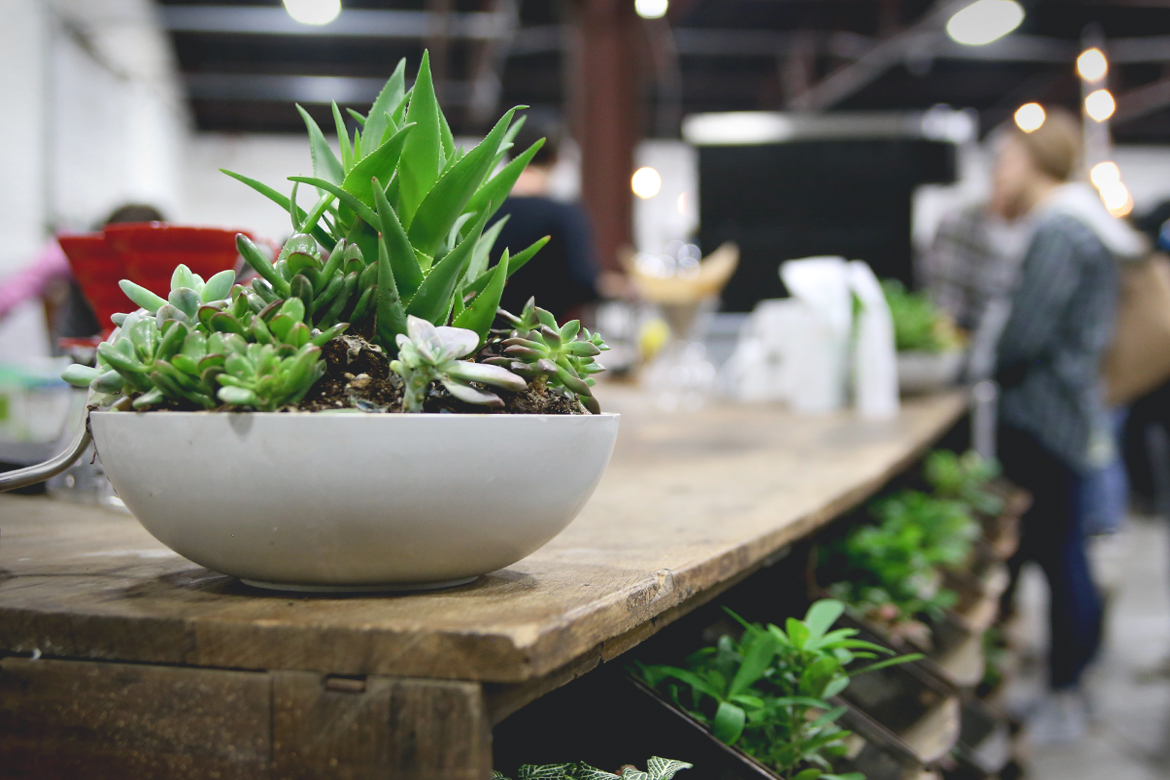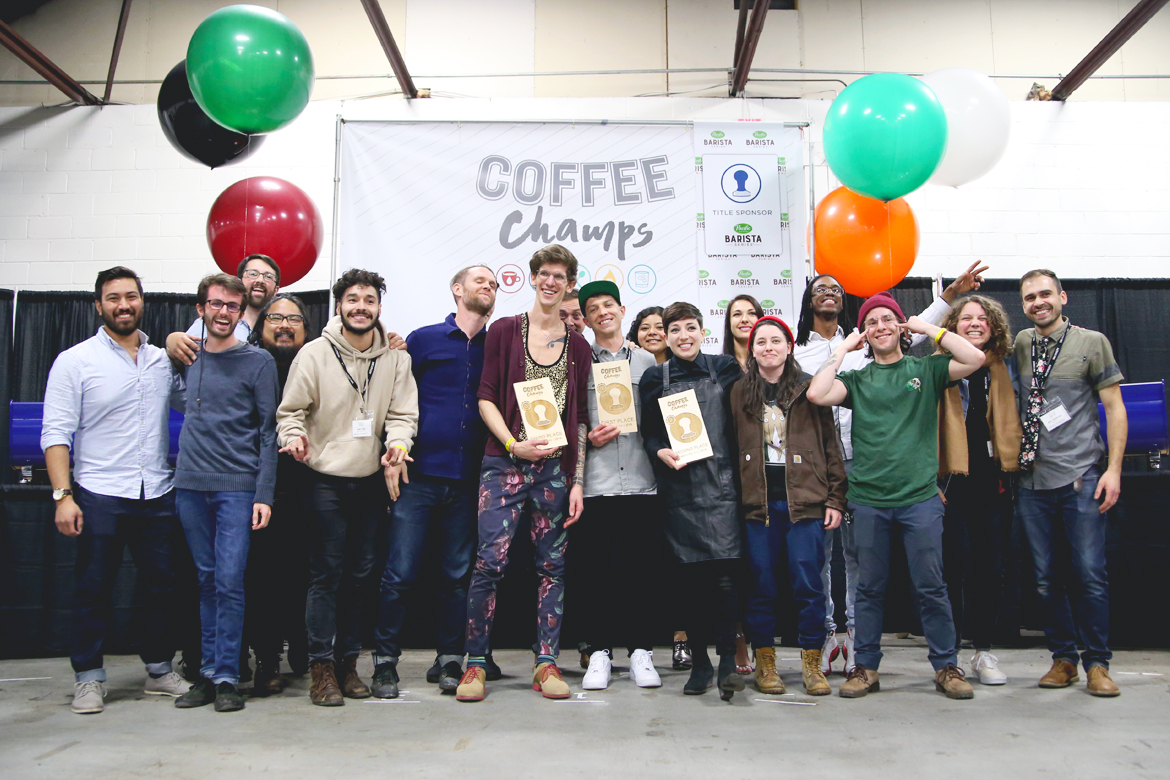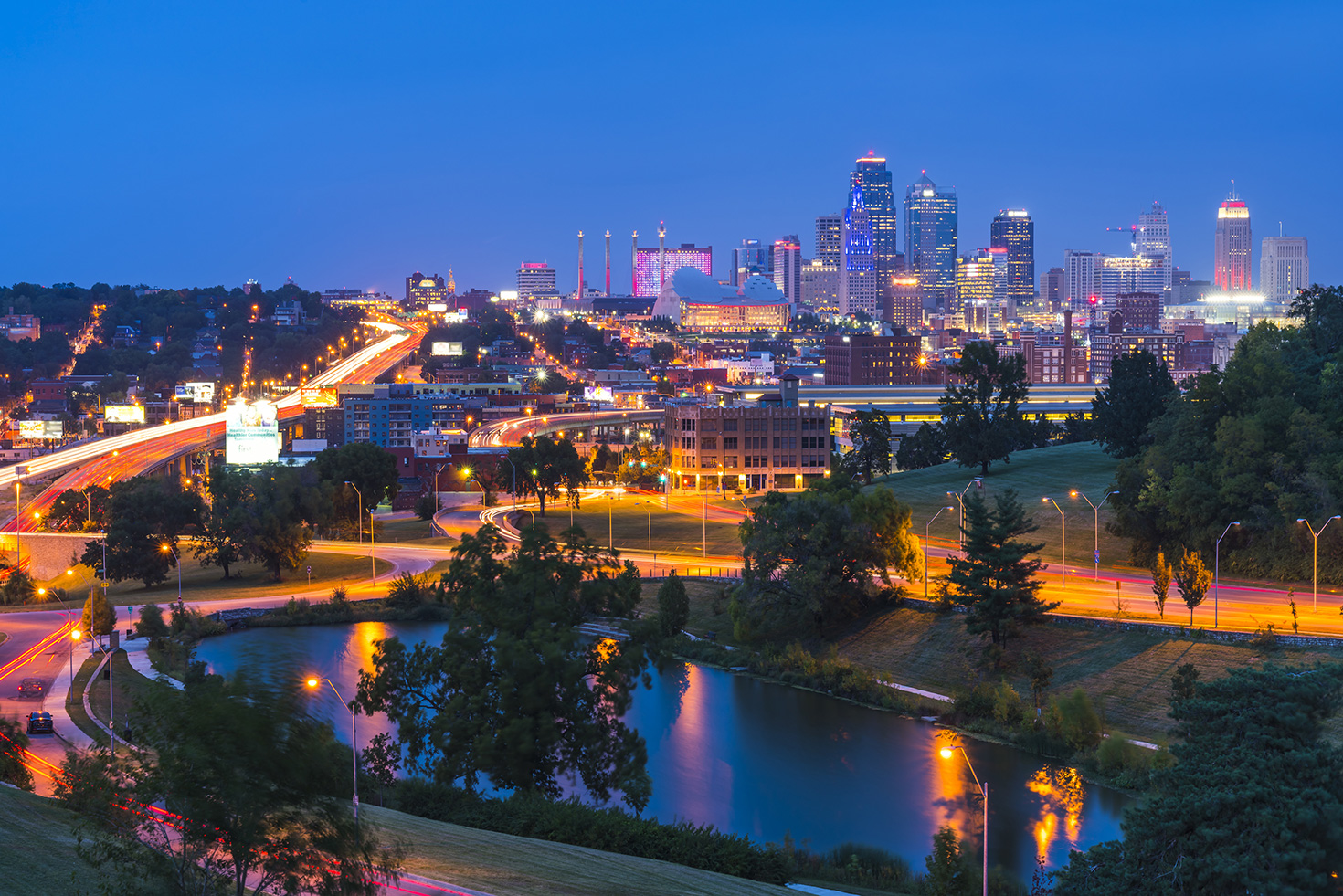Time flies when you’re having fun. And also when you only have 10 minutes to make espressos and signature beverages for a panel of judges deciding if you will make it to the US Barista Championship. That’s what happened today at Day One of the Barista Championship Qualifying Event at the Track One events space in Nashville, Tennessee, where 26 coffee professionals took the stage in hopes of punching their ticket to Kansas City.
We’re only halfway through our time here in Nashville for the US Coffee Championships but we’ve already run the full gamut of coffee competition emotions: the thrills! the spills! the post-10-minute penalty points looming large! So let’s take a look back at all the action from Day One of the Barista Championship Qualifying Event in Nashville, Tennessee.
SprudgeLive’s coverage of the 2019 US Coffee Champs is made possible by Joe Glo and Mahlkönig. All of SprudgeLive’s 2019 competition coverage is made possible by Acaia, Baratza, Faema, Cafe Imports, and Wilbur Curtis.
Rory Ferguson, Buona Caffe
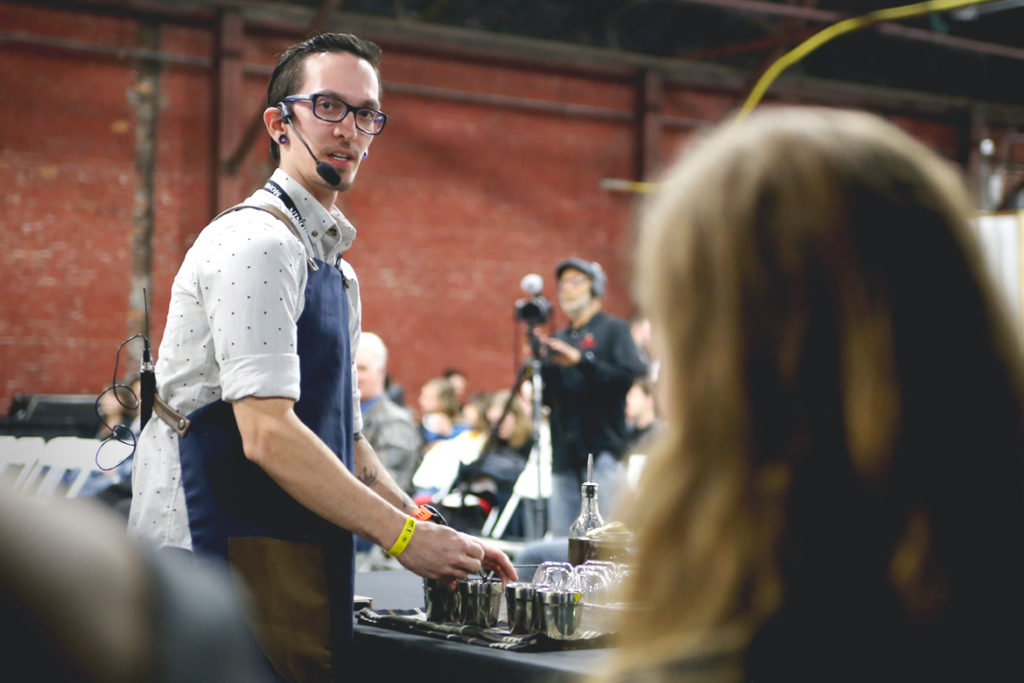
And we’re off! Our first competitor of the day is Rory Ferguson of Buona Caffe @BuonaCaffe #coffeechampsnashville
As an espresso dosed at 18g with a total shot time of 25 seconds, Ferguson’s Guji natural has notes of blueberry with a brown sugar sweetness and grapefruit acidity.
Playing off the flavors in his Guji espresso course, Ferguson’s sig bev includes a blueberry shrub and grapefruit rim.
Becca DeBoer, Duluth Coffee Co
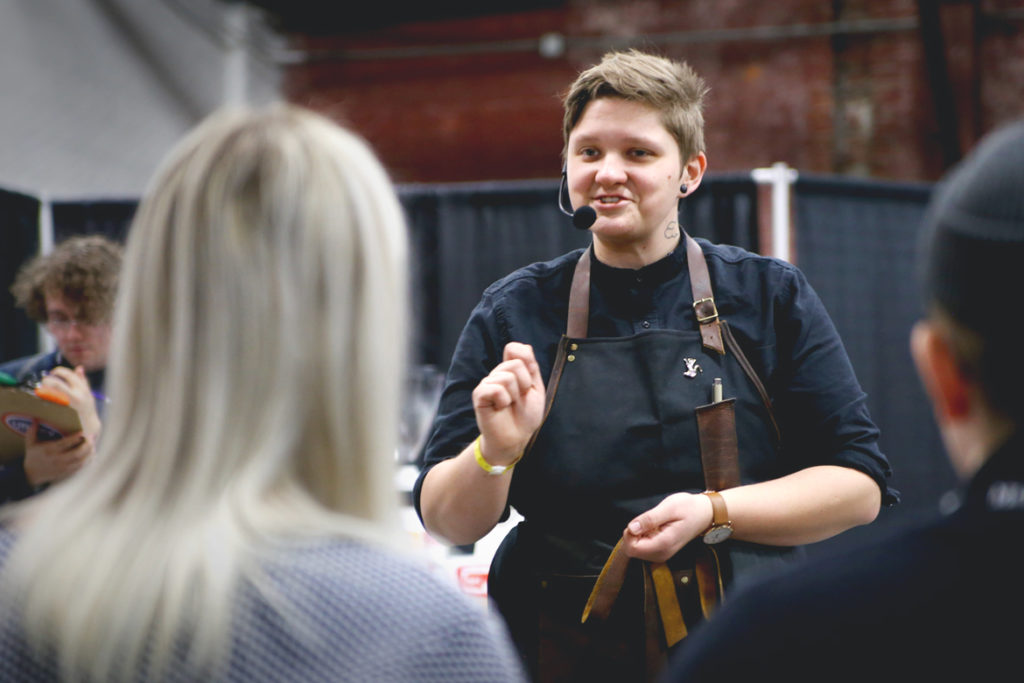
“Our job as baristas is to deliver hospitality. However, our hospitality shouldn’t just be delivered to the customers.” – Becca DeBoer of @duluthcoffee
DeBoer competes today with a Catuai variety from Tarrazu, Costa Rica with notes of raspberry, roasted hazelnut, and caramel apple as an espresso.
Sig bev for DeBoer includes a medjool date compote, grapefruit juice, coconut cream, and pink himalayan sea salt, finished off with a rosemary sprig.
Really nice pacing from Deboer’s routine. Calm, cool, and collected, right up until calling time at 9:57.
Sarah Hise, Independent
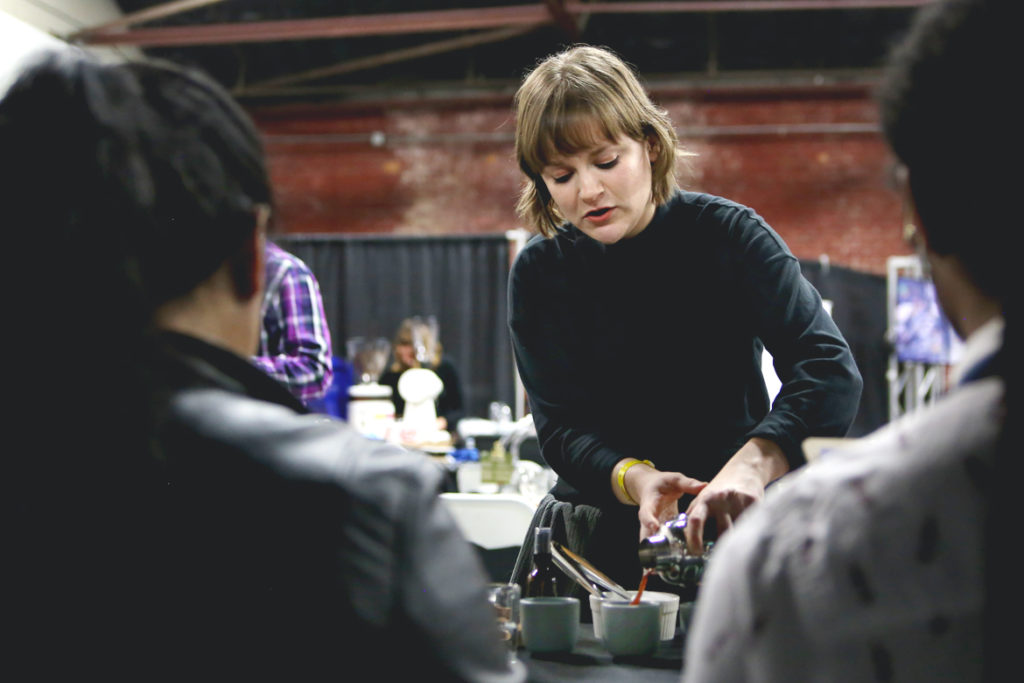
I’d like to thank @sarahahise for starting her routine with @tuneyards‘ Hammer, reminding me how much I like tUnE-yArDs.
.@sarahahise competes with a coffee from the Buchiro washing station in South Kivu, Democratic Republic of the Congo, roasted by @counter_culture
The Buchiro washing station promotes gender equality at origin, a thread that @sarahahise brings back to the US, discussing the need for equality for at the cafe level.
For her sig bev, Hise has incorporated black tea from Spirit Tea, pineapple habanero concentrate, and a brining solution.
Maud Hasler, Kaldi’s Coffee Roasting Co
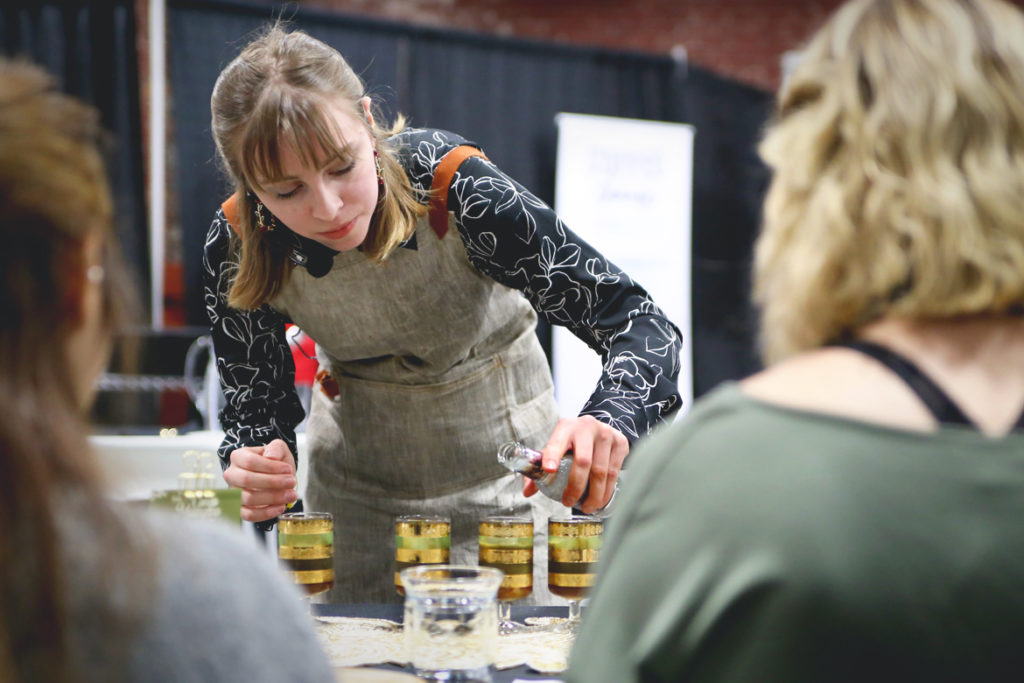
Do my ears deceive me? Is Hasler playing the @backstreetboys in her soundtrack? Is Backstreet back? And more importantly, is it alright?
Hasler competes with a wash processed Bourbon from the Muungano Cooperative in the Democratic Republic of Congo.
Ok now we’re Dirty Poppin’ during Hasler’s routine. She is bringing the early-00’s boy band realness like Coffee Champs has never felt before.
Notes of fig, grapefruit, and baking spices in Hasler’s DRC espresso course.
Sig bev for Hasler includes egg white, juniper berries, and espresso, shaken over ice and strained.
Kate Eichler, Free Press Coffee House
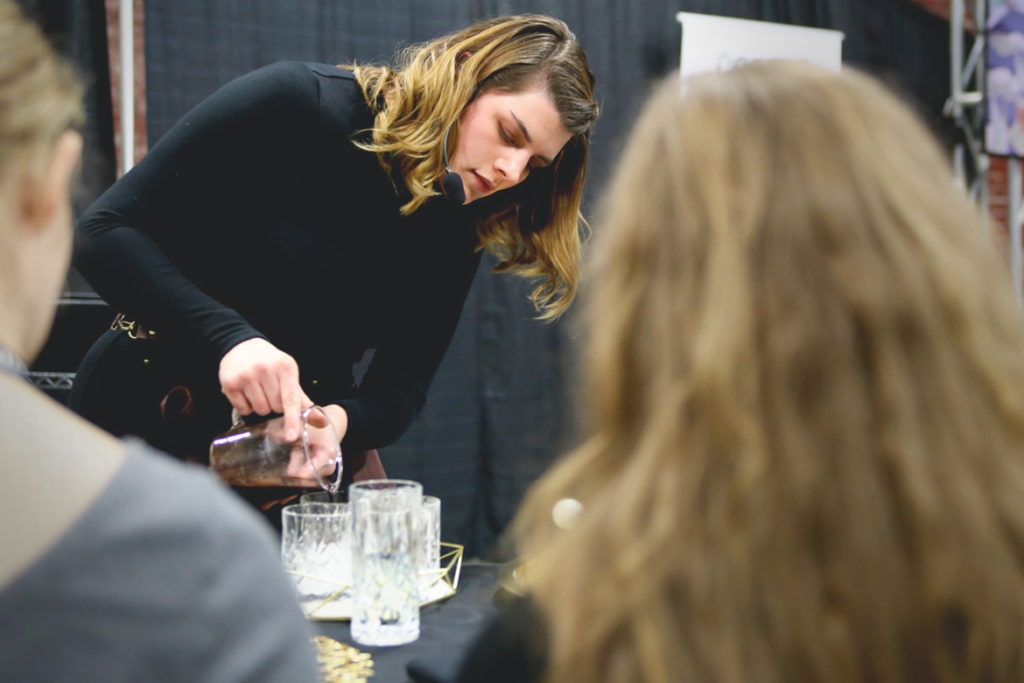
Eichler competes with a Hambela estate coffee from the Guji Zone in Ethiopia, with notes of grapefruit and strawberry with a chocolate finish.
Blueberry reduction, Illinois honey, all whisked, served in a glass with a jasmine green tea spritz for Eichler’s sig bev.
Eichler’s @thebeatles-heavy soundtrack reminds me that the @mountain_goats need to start a cover band called The Bleatles.
Kate Eichler of @freepressspro calls time at 9:51.
Barry Taft, Independent
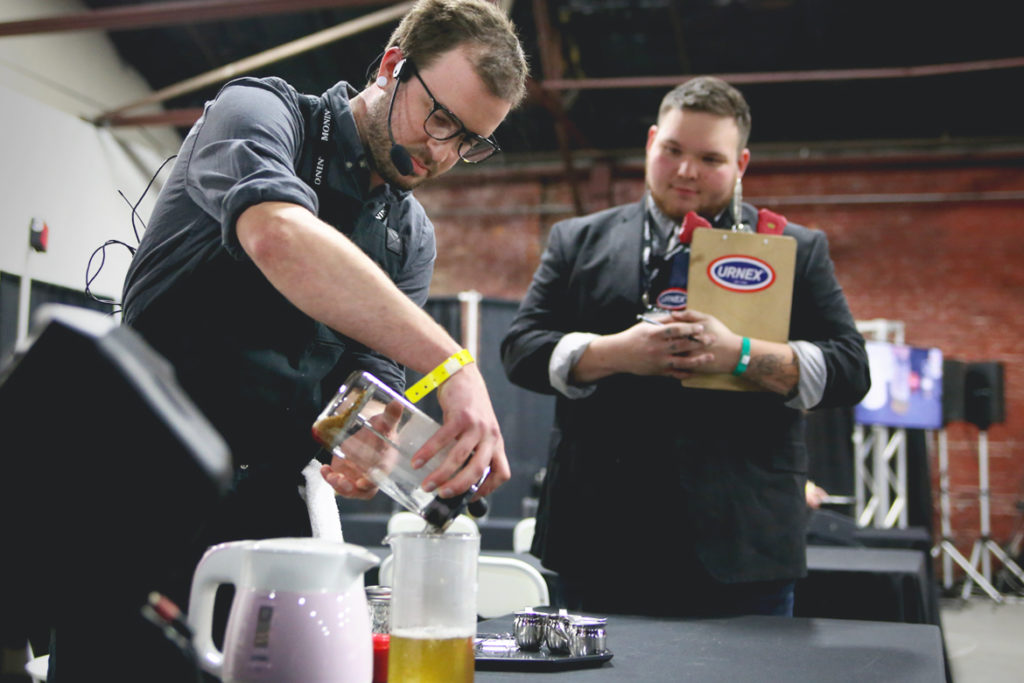
“Envision a forest clearing… there are rocks… and a stream.” A guided meditation by Taft starts his routine.
Taft competes with a mix of Caturra and Bourbon varieties grown at 1700MASL in Huehuetenango, Guatemala by Mauricio Gonzalez.
Taft is pulling his espresso shots at 18g in and 51g out in 40 seconds, by far the highest volume shots of the competition thus far.
For his sig bev, Taft wants to harken the “flavors of the northeast:” apple, maple, and cranberry. To do this, he has incorporated candied mushrooms, birch syrup, white peppercorn, and cranberry jam.
Isaiah Kearney, Davis Cookware & Coffee
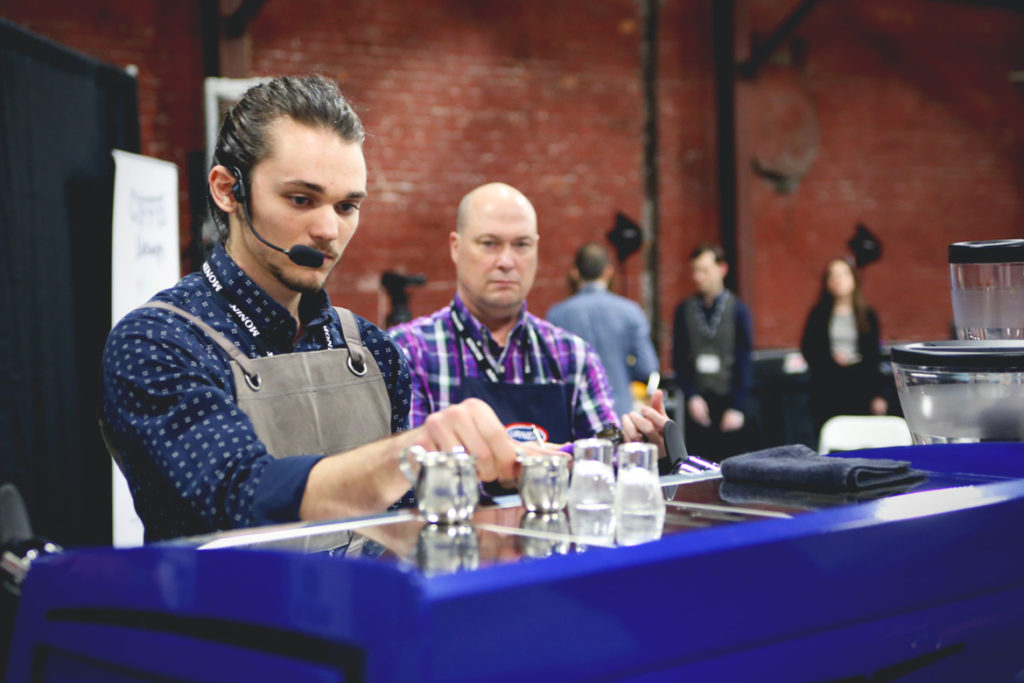
It should come as no surprise that Music City competitor Kearney speaks in musical terms, referring to melody and countermelody.
Notes of tomato, sweet butter, and coconut from Kearney’s blended espresso, one component of which is a coffee from Tarrazu, Costa Rica, which tastes like “freshly cut grass.”
We’ve got our first steamed milk sighting! Kearney is rocking the milk-bev-as-sig-bev course, and I gotta say, it’s one of my favorite moves at the Qualifying round of competition.
Steamed milk, crushed black pepper and ambrosia apple, and espresso, all finished off with a foam cap for Kearney’s milk/sig bev.
Kay Cheon, Dune Coffee Roasters
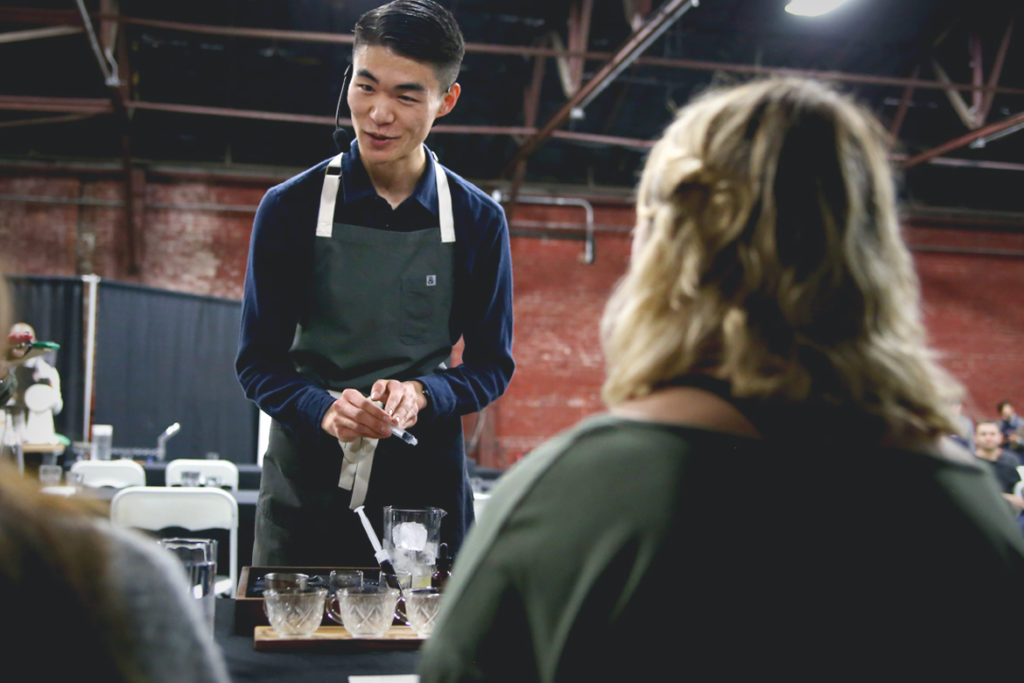
Cheon competes with a natural processed coffee from 2019 Spudgie Award winner for Notable Coffee Producer Juan Peña of Hacienda La Papaya in Ecuador.
Fresh raspberry, brown sugar sweetness, orange zest acidity, and a lingering cocoa powder finish for Cheon’s La Papaya espressos.
I’d be remiss to forget to mention Cheon’s use of @ABBA‘s Dancing Queen at the start of his routine.
Pineapple gum syrup and hibiscus tea-based sig bev for Cheon gives the La Papaya espresso flavors of guava, red apple, and cranberry.
Rachel Diaz, Flatlands Coffee
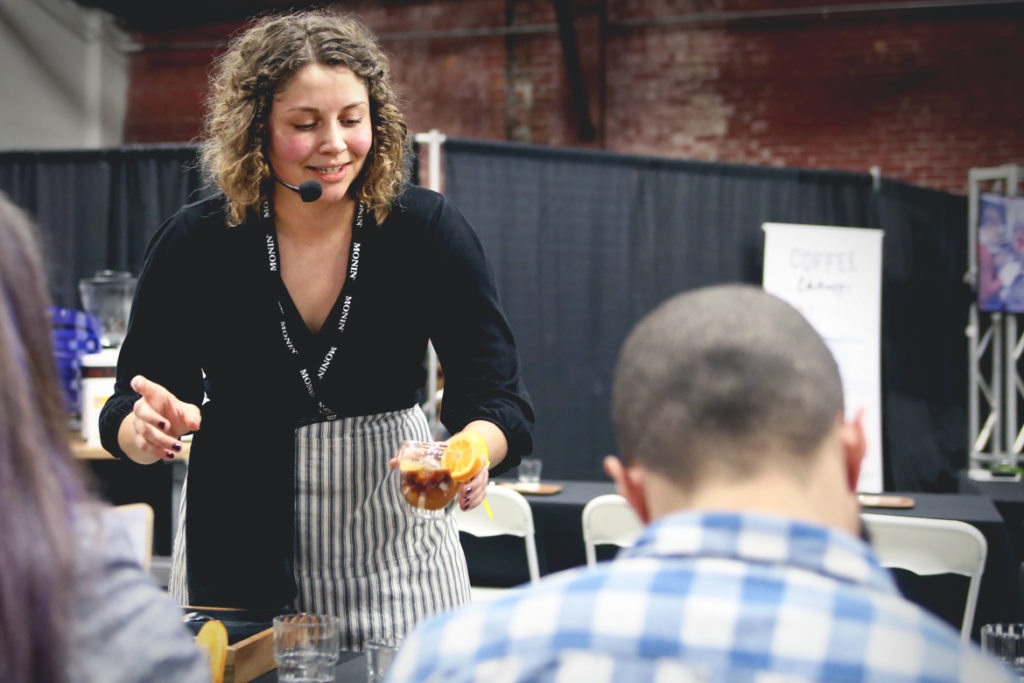
Diaz is using a AA espresso made primarily of SL28 and SL34 varieties in Kirinyaga, Kenya.
Notes of cranberry, orange peel, caramelized sugar, with a cocoa nib and lime rind finish for Diaz’s Kirinyaga espresso course.
If there’s been a trend this early in the competition, it’s just simply cocktail-based sig bev courses, but shout outs to the specific mixologist who inspired the drink
Sig bev for Diaz includes a pear shrub and @FeverTreeMixers tonic.
Chris Marinuzzi, Ogawa Coffee
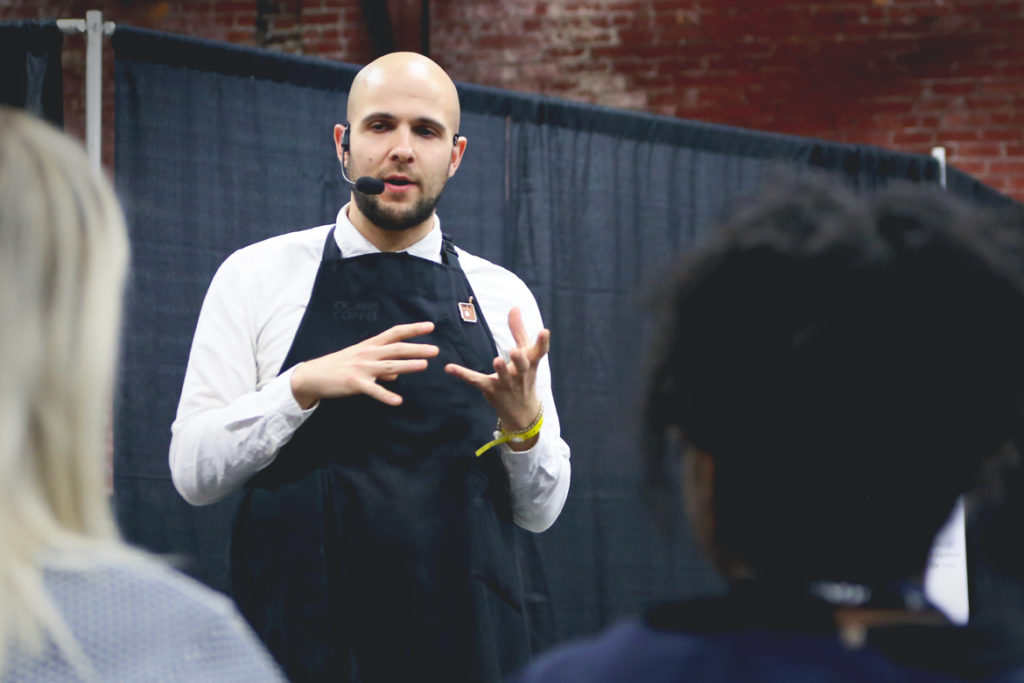
We’ve got our first Gesha sighting! Marinuzzi competes today with a natural processed Gesha from western Panama grown at 1900MASL.
Marinuzzi’s sig bev includes a blackberry and kefir lime syrup and Gesha espresso, blended together.
Chris Marinuzzi of @OgawaCoffeeUSA calls time at 9:57
Rodrigo Vargas, Rival Bros Coffee Roasters
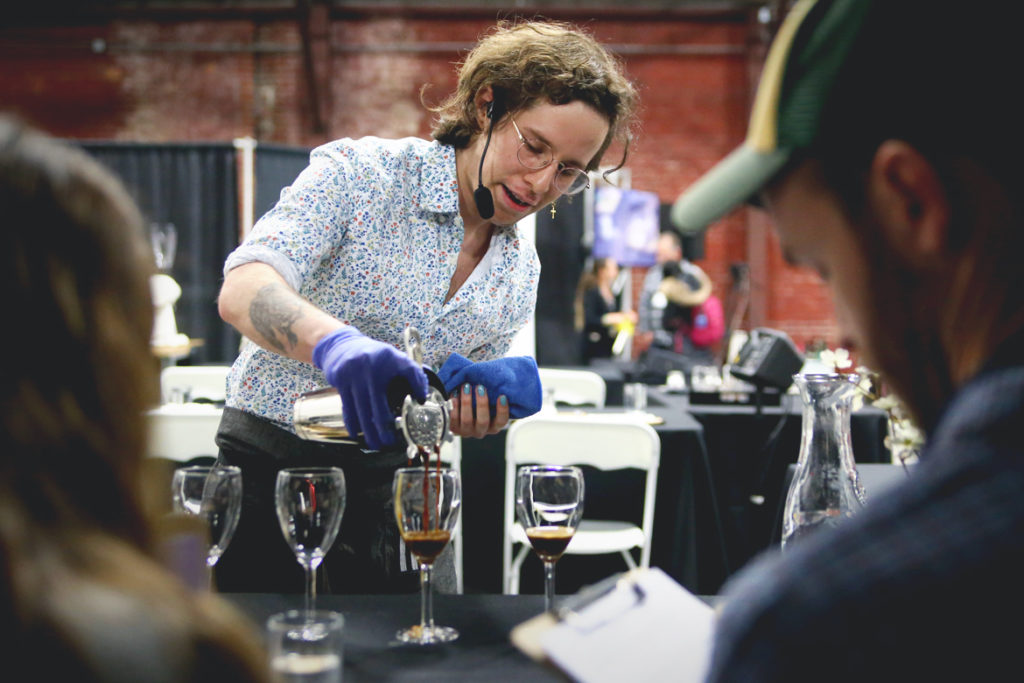
Vargas has had the loudest crowd reaction by far here at Coffee Champs. He’s got quite the cheering section.
Vargas competes with a Gesha and Caturra blend from his home country of Peru.
Plum, lime, and bakers chocolate with a medium body and silky, hot chocolate-like texture for Vargas’ Gesha/Caturra espresso blend.
Vargas is basing his sig bev on the national drink of Peru: the pisco sour. Lime juice, rooibos tea, brown sugar simple, and egg white all get shaken together.
Kara Huckabone, Milan Coffee Works
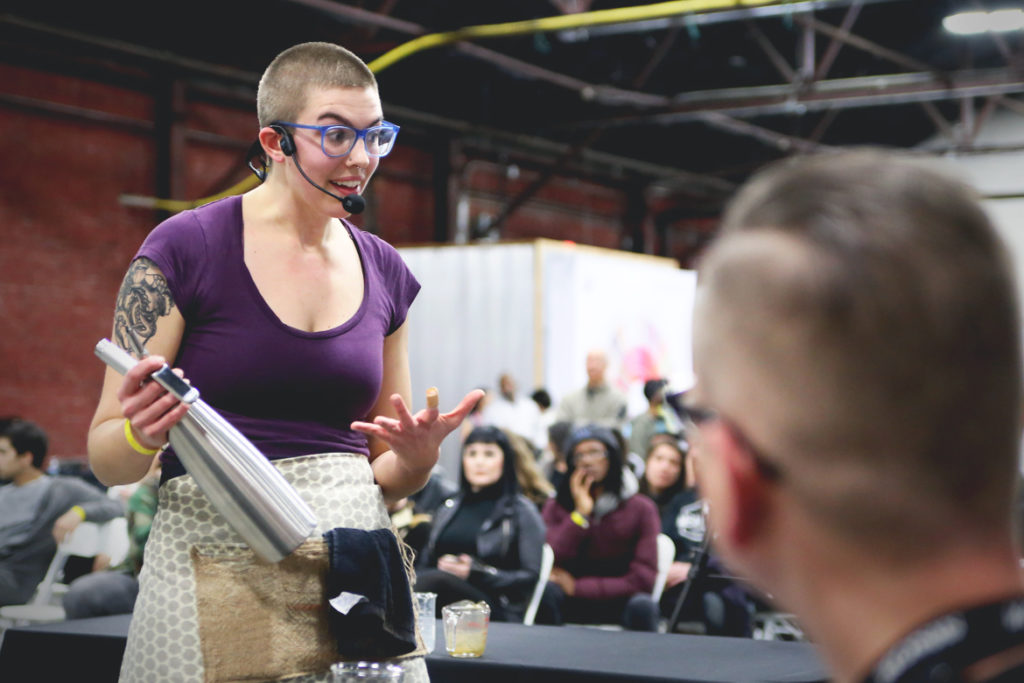
“Sharing the beauty of coffee doesn’t have to lead to exclusivity.” — @KaraHuckabone of Milan Coffee Works
A blend of washed and natural processed coffees from Ethiopia, @karahuckabone‘s espresso course has notes of citrus, raspberry, apricot, plum, apple, and walnut
Sig bev for @karahuckabone includes dried lemongrass-infused oat milk, hibicbus, molasses, and orange oil, all getting a nitro charge.
Sig bev glassware comes primed with a lavender essential oil for @karahuckabone. Kara, please bring some lavender essential oil over to the Sprudge Live desk.
Jenna Gotthelf, Counter Culture Coffee
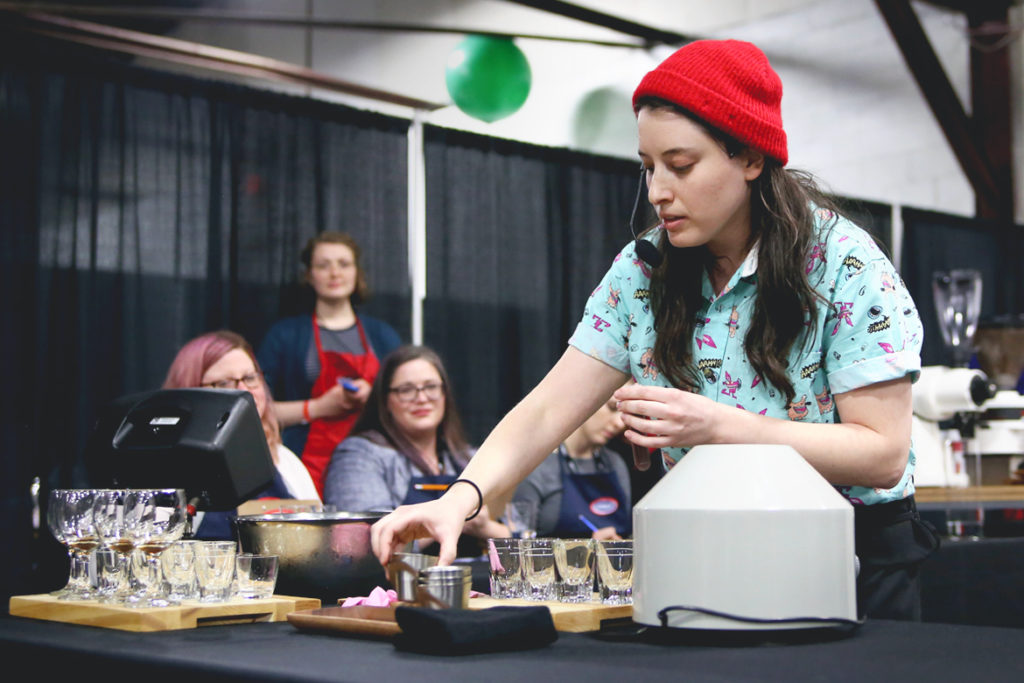
Gotthelf is the most seasoned competitor to take the stage during Day One of the Barista Championship, having made deep runs in the national rounds of both the Barista and Brewers Cup.
.@this_is_JennaG is starting off her routine by putting her Kenya peaberry espressos into a centrifuge for 3.5 minutes, giving it notes of hibiscus tea, pomegranate, light molasses sweetness, and 75% dark chocolate
And yes, that is an incredible Aaahh!!! Real Monsters shirt @this_is_JennaG has on.
Sig bev for @this_is_JennaG contains frozen grapes, lactic simple, Kenya espresso pulled through chilled portafilter baskets, and a carbonated cucumber concentrate.
Alex Werth, Blueprint Coffee
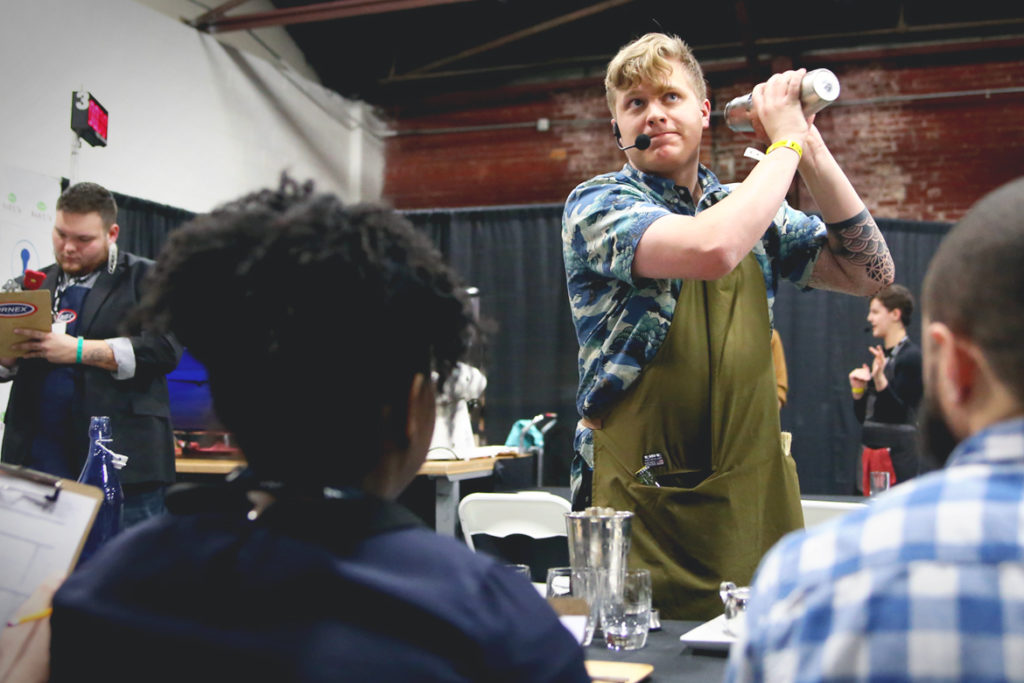
Werth is using a washed coffee from the Allona washing station in Guji, Ethiopia, grown between 1800 and 2000MASL.
Notes of orange, cherry, and black tea sweetness in Werth’s washed Guji espresso course.
Werth’s sig bev is a take on a Gin Fizz Ramos, using Guji espresso instead of gin, of course.
Jordan McClone, Colectivo Coffee
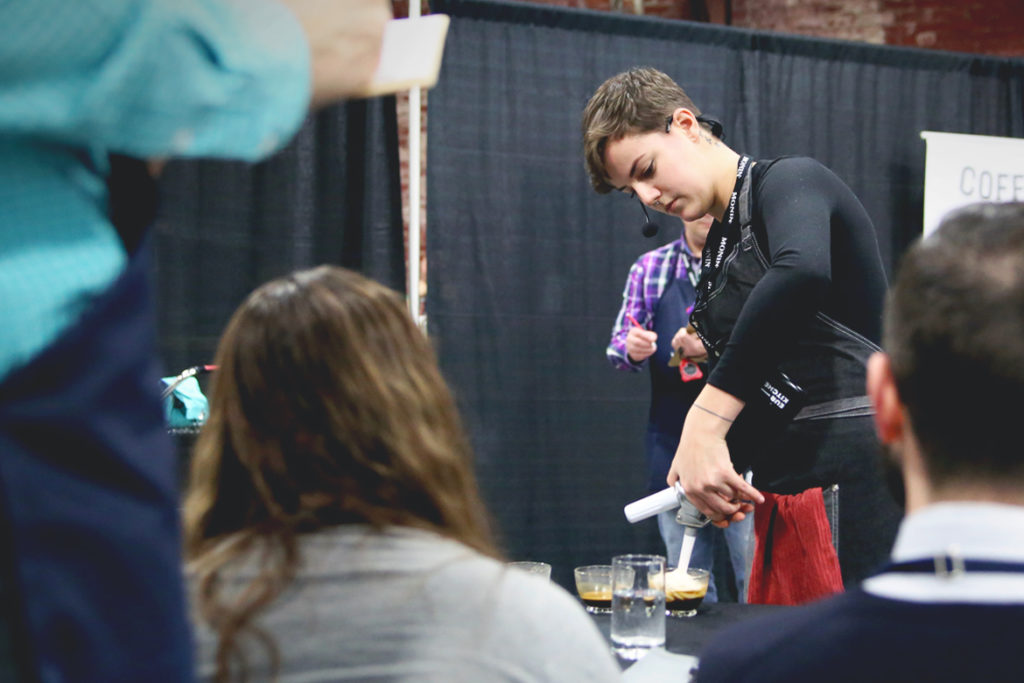
.@MccloneJordan competes with an 85/15 blend of two coffees from the La Prosperidad de Chirinos cooperative in Peru.
As an espresso, @MccloneJordan‘s Peru blend espresso expresses notes of lime acidity and dark cocoa sweetness with an herbal cascara tea finish.
Like Rodrigo Vargas four competitors before her, @mcclonejordan is making a Pisco sour inspired sig bev.
Now I want a pisco sour.
Egg whites, lime juice, molasses, and angostura bitters, all get a nitro charge and poured over @mcclonejordan‘s Peru espresso for her pisco sour sig bev.
Jimmy Truong, Epilogue Roasters
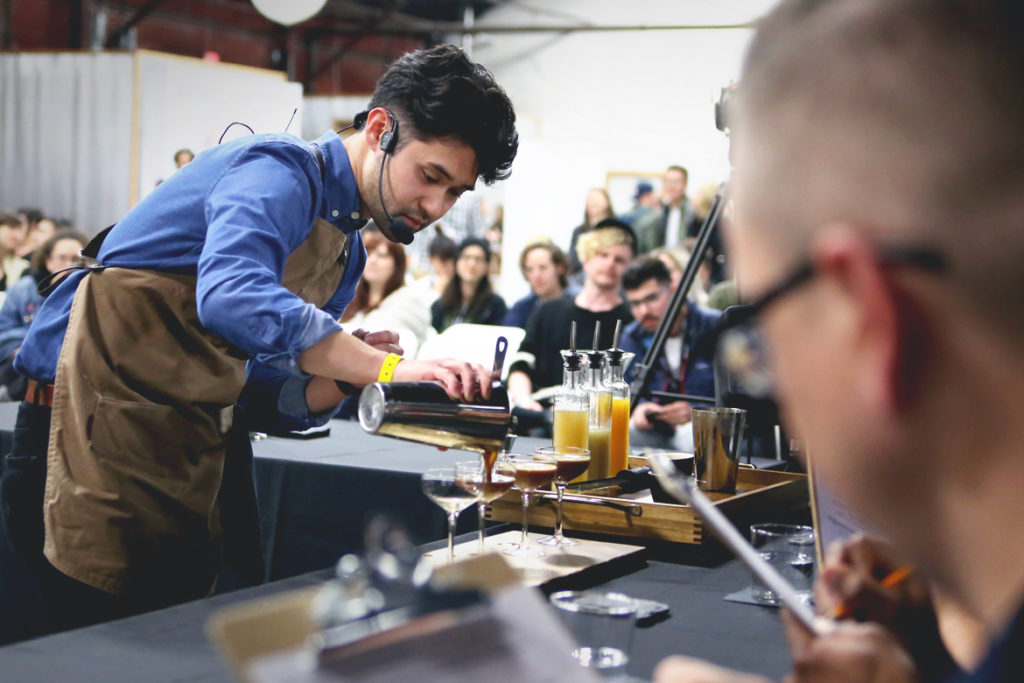
Truong is competing today with the first coffee he sourced and roasted on his own as a business, a washed coffee from Nariño, Colombia, grown at 2,000MASL.
Baking spice and milk chocolate aromas transform into honey, milk chocolate, and orange on the palate for Truong’s Nariño espresso course.
Orange bitter reduction, aquafaba, and an almond, allspice, ginger, and cardamom syrup comprise the components of Truong’s sig bev.
Sawyer Beckley, Backyard Beans Coffee Co
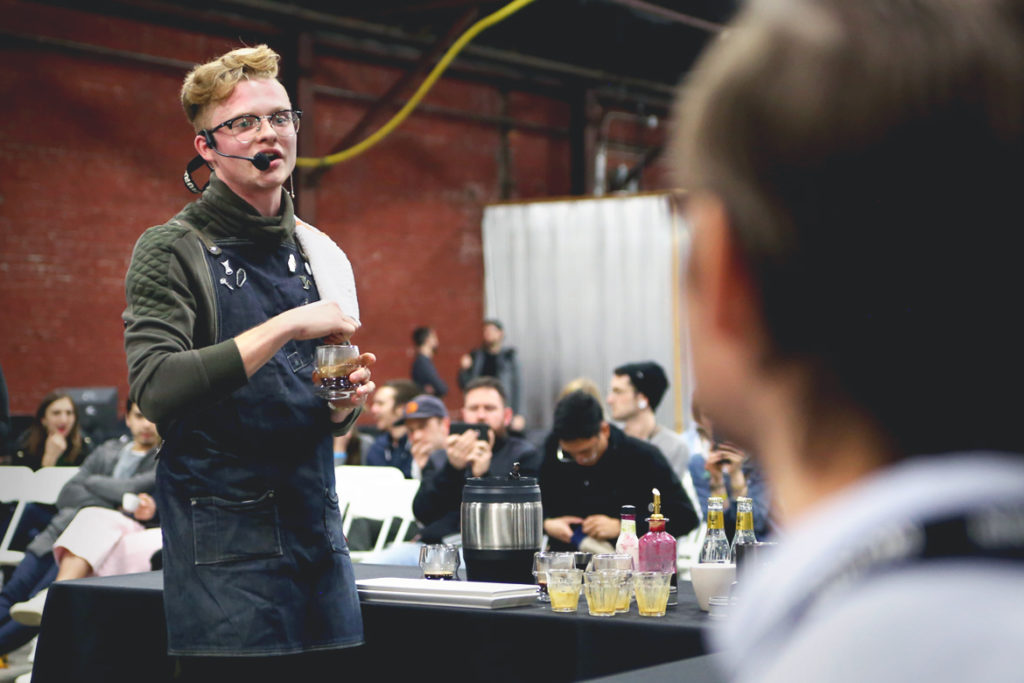
Using a coffee from Kirinyaga, Kenya, Beckley’s espresso course has notes of blackcurrant, red grape, and a sparkling wine acidity and finish.
Wasting no time, Beckley moves straight away into his sig bev. Citric acid, tonic water, powdered egg white, and purple fruit reduction, create a drink he describes as warm and comforting.
Sawyer Beckley of @backyardbeans calls time at 9:57
Lotta people have called time at 9:57 today. Not really sure what it means, but I’m certain the Illuminati is involved.
Camille Bevans, Nossa Familia Coffee
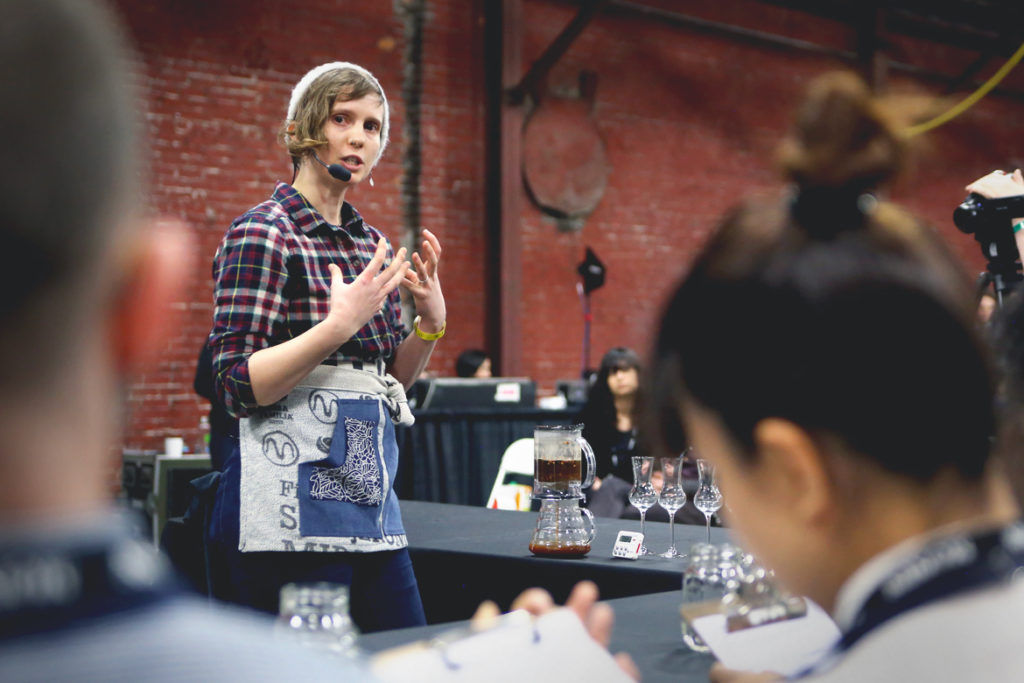
Bevans starts her routine strong with Seasons by @futureislands, just one of the many hits you can find on our NOW! That’s What I Call A Barista Competition playlist.
Bevans is using a Guatemalan coffee from Santa Maria de Jesus outside Antigua, with tasting notes of pink grapefruit, florals, and toasted nuts.
Peppercorn, jam, and rose petals in Bevans’ espresso course represent three stages of the coffee production chain: growing, processing, and roasting.
Flavors of persimmon, stewed peach, rose petal, and a warm, spicy finish in Bevans’ sig bev today at @uscoffeechamps.
Zedeeka Fulay, One Line Coffee
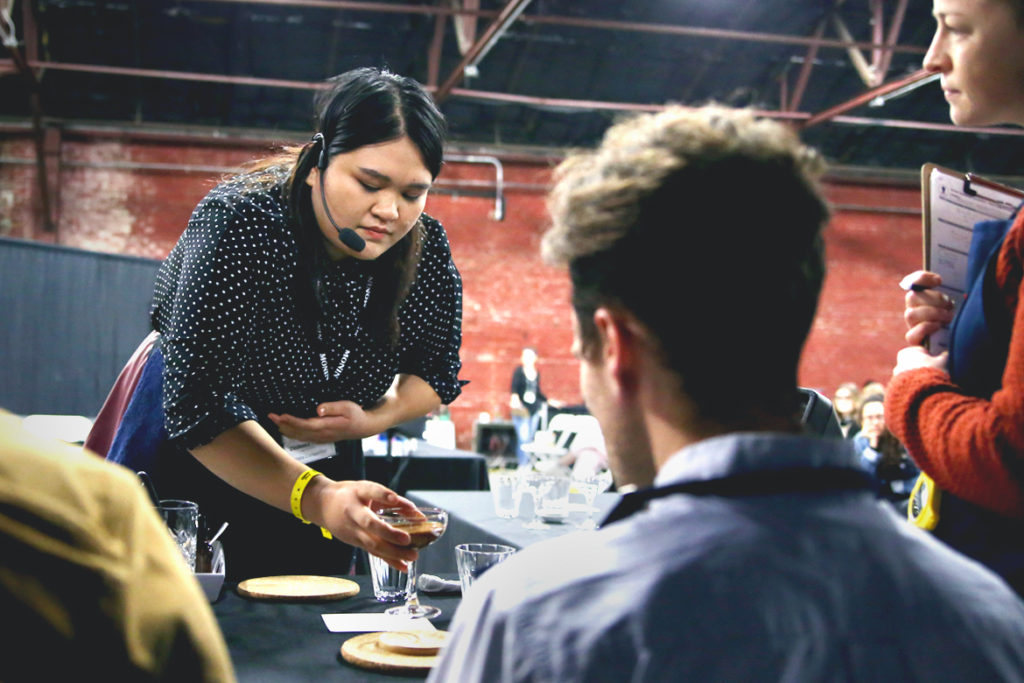
Fulay is using a Kenyan coffee grown at 1640MASL north of Nairobi, with notes of roasted pineapple, brown sugar, and a pine sweetness.
Drawing inspiration from her Filipino heritage, Fulay’s sig bev includes Ube (purple yam) and lime and ginger-infused ice cubes, all shaken with her Kenyan espresso, finished with crushed lime pith
Zedeeka Fulay of @onelinecoffee calls time at, you guessed it, 9:57.
Joseph Monett, Cafe Grumpy
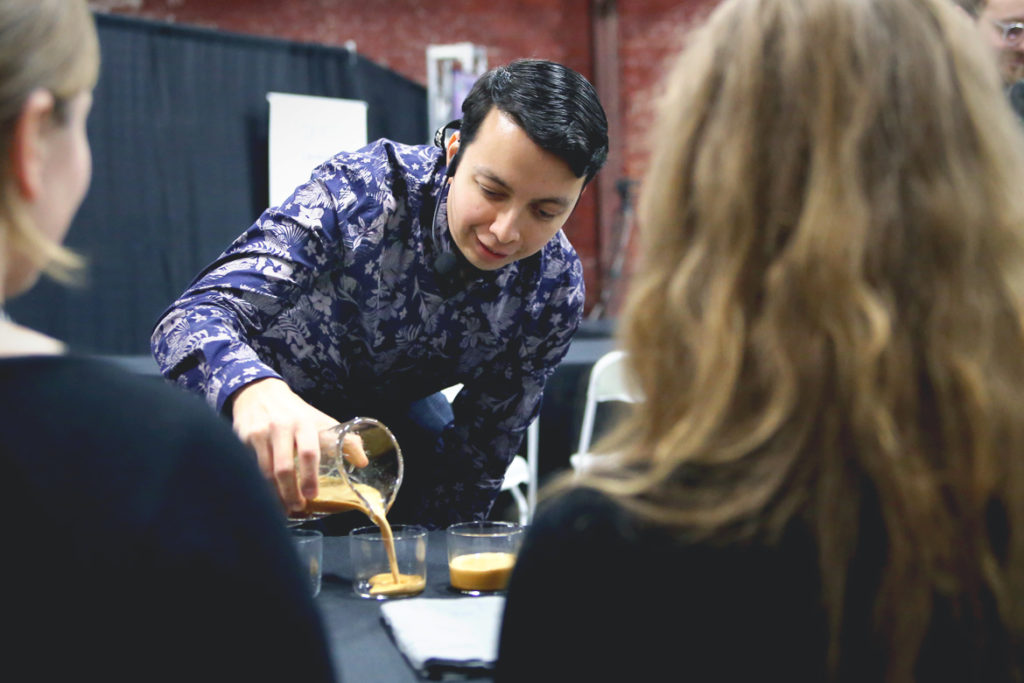
.@Juxtajoes competes today with a washed coffee grown on the Las Flores farm in Santa Barbara, Honduras by Cesar Fernandez.
Grapefruit, light caramel, papaya, and jasmine in @Juxtajoes Honduran espresso course.
Sig bev for @juxtajoes includes rose mango kombucha, a jasmine, oat, and juniper tea, NY wildflower honey, and muddled fresh rose petals, chilled, strained, and nitro charged.
A lot of baristas are using very chill, down-tempo music. We’re zenned out over here, but we wouldn’t turn down some power pop should a competitor have some queued up.
Samuel Schaefer, Stovetop Roasters

.@2pacshafar is using a natural processed 100% Red Catuai variety coffee grown at 1,150MASL in Minas Gerais, Brazil.
Don’t go chasing waterfalls. @2pacshafar rocking the TLC during his routine.
Dried cranberry, orange peel, cherry wood, and rosehip in @2pacshafar‘s natural Brazilian espresso course.
The waterfall in @2pacshafar‘s routine is a frozen eucolyptus, rooibos, and honey shot block that he sends his espresso on a luge ride down, into an awaiting elderberry shrub.
Ethan Scott, Vice & Virtue Coffee
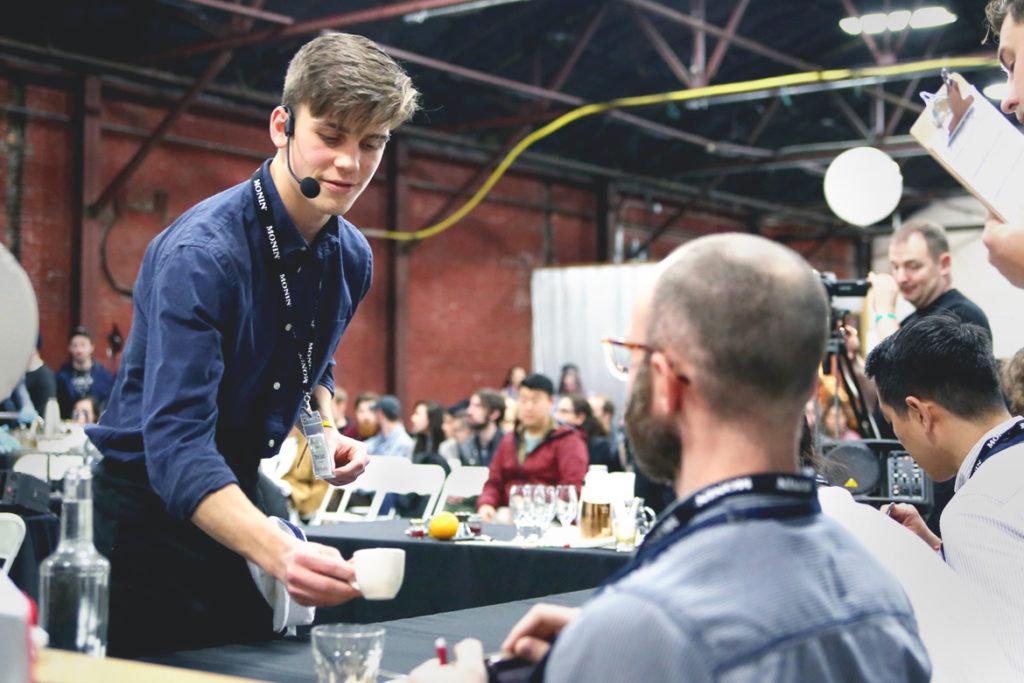
Scott competes with a Salvadoran naturally processed coffee grown at 1,500MASL by Carlos Mauricio Lemus on Finca San Antonio.
Scott’s espressos have a sour lemon acidity, sweet strawberry yogurt, peach moscato, floral black tea, and a bitter drying chocolate finish.
We’ve seen a lot of different origins thus far in the Barista Championship at #coffeechampsnashville. Kenya, Ethiopia, Congo, El Salvador, Panama, Peru, Honduras, Colombia, Ecuador, and Brazil have all been represented, one of the most diverse lineups in recent memory.
Sig bev for Scott includes chocolate bitters, peach bitters, blood orange peel, all getting a nitro charge
Alex Kim, Black Fox Coffee Co
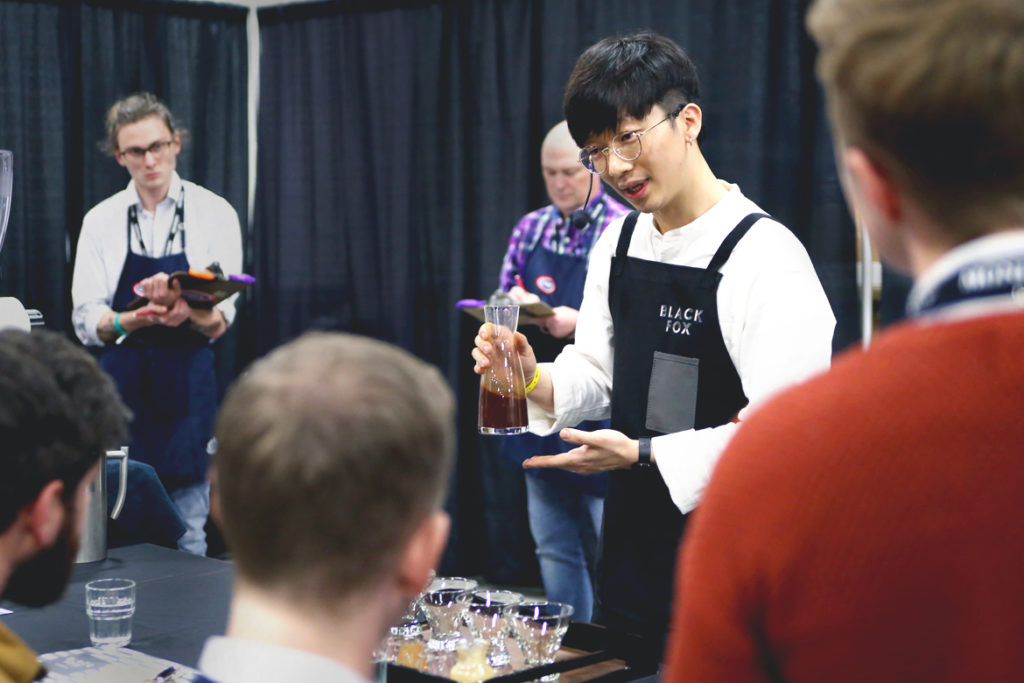
Kim competes with a coffee from Kirinyaga, Kenya roasted by @ghowellcoffee
“Stir five times.” Kim is one of the only competitors today to give detailed drinking instructions for his espresso course.
Blackberry, cherry, and blood orange notes in Kim’s @ghowellcoffee roasted Kenyan espressos.
Playing on the flavors from the espresso course, Kim incorporates a blackberry reduction, cherry puree, and blood orange juice into his sig bev.
Leah Ritsema, Madcap Coffee Co
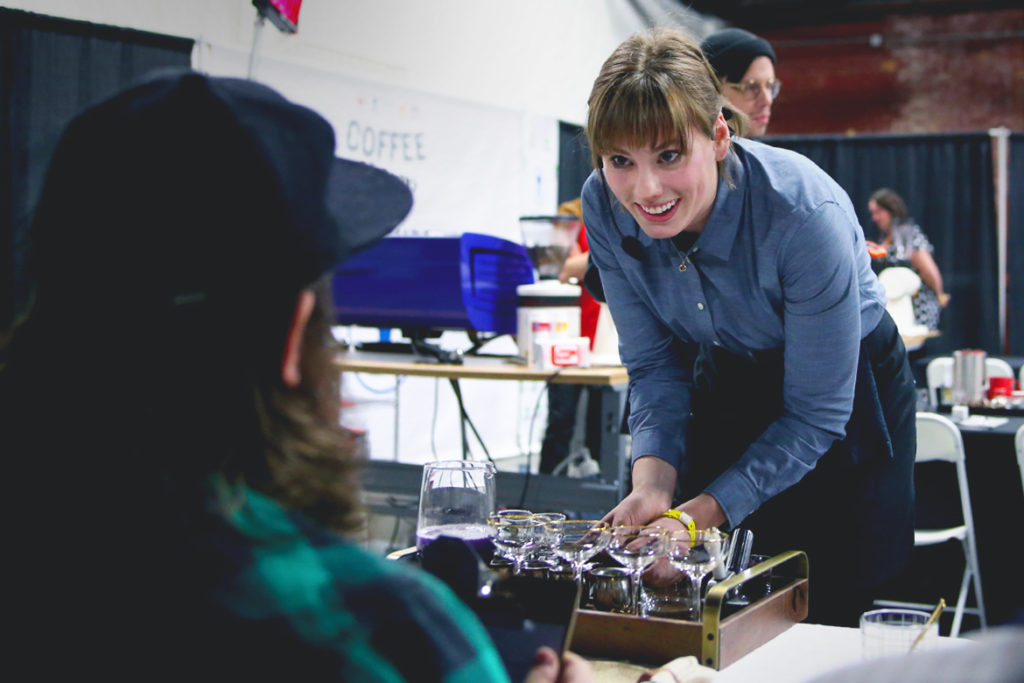
The blossoming of 9th grade love is on full display at the beginning of Ritsema’s routine. Braces, awkward dances, bobby pins, the musical stylings of Jason Aldean. It’s all there.
Ritsema’s coffee is a washed heirloom variety, fully shade grown coffee grown at 2,100MASL, some of the highest elevations Ethiopia has to offer.
Notes sweet tart strawberry rhubarb and hibiscus in Ritsema’s espresso course.
Ginger, orange blossom water, foam of oven roasted blueberries, aquafaba, and white tea in Ritsema’s risk-based sig bev, reminiscent of 9th grade love.
Steph Caronna, North Carolina Museum of Art
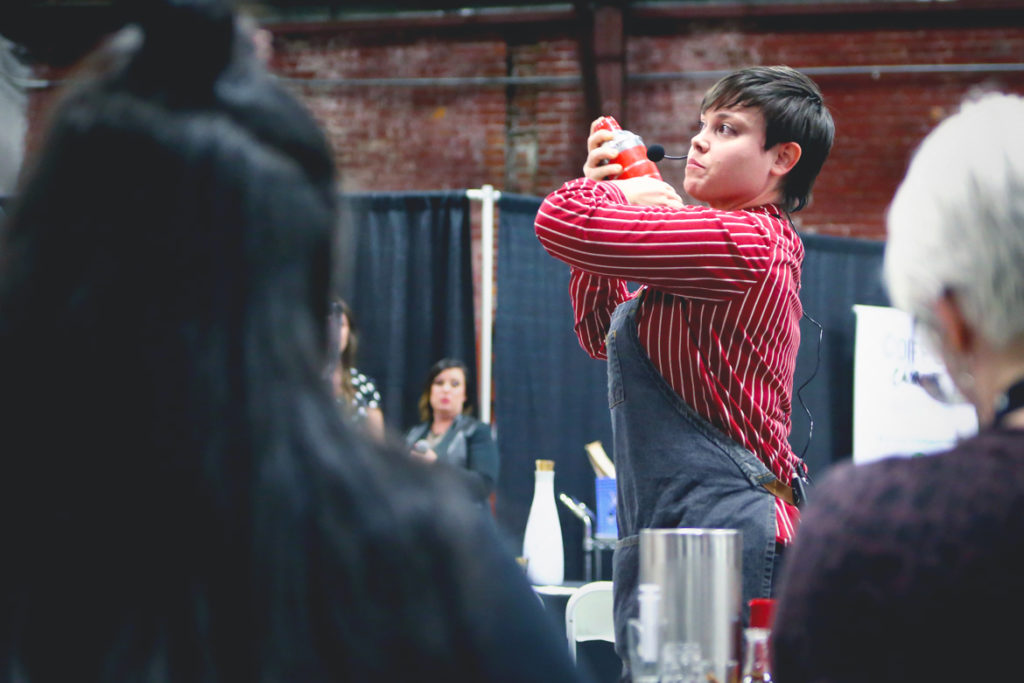
Using a fully washed mix of SL28 and SL34 varieties grown at the base of Mt. Kenya, @CoffeeSteph8876‘s espresso course has notes of lime, currant, and cane sugar
.@CoffeeSteph8876 is another of the well-seasoned competitors here at Day One. Today is the day of the rookies.
A very cool savory caramel makes up the base of @CoffeeSteph8876‘s sig bev, using a homemade caramel that then gets a light balsamic vinegar incorporated.
Sarah Gill, Mama Mochas
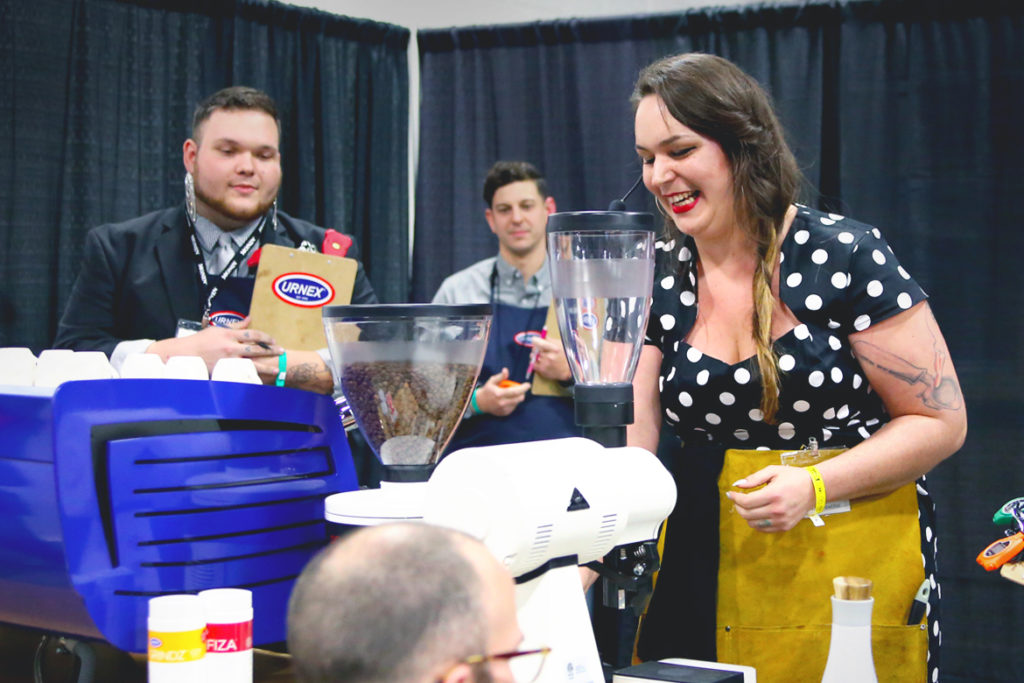
“You can call me Mama Mocha.” Big crowd out here for Sarah Gill.
“I’ve been roasting dark. Don’t be scared.” Mama Mocha roasts low and slow.
In a day of very quiet, reserved performances, Sarah Gill aka Mama Mocha has brought this crowd to life. The most engaged they’ve been all day.
Coffee pulp sweetness, a pomegranate acidity, and a dark chocolate bitterness in Gill’s Salvadoran espresso course.
Torched palm wood smoke trapped under her sig bev glasses, Gill’s sig bev includes ice cream, monin syrup, and Salvadoran espresso.
Sarah Gill of @mamamochasce calls time at 11:09 to a standing ovation.
We’ll see you tomorrow for Day Two of the US Coffee Championships Qualifying Event in Nashville, Tennessee!
